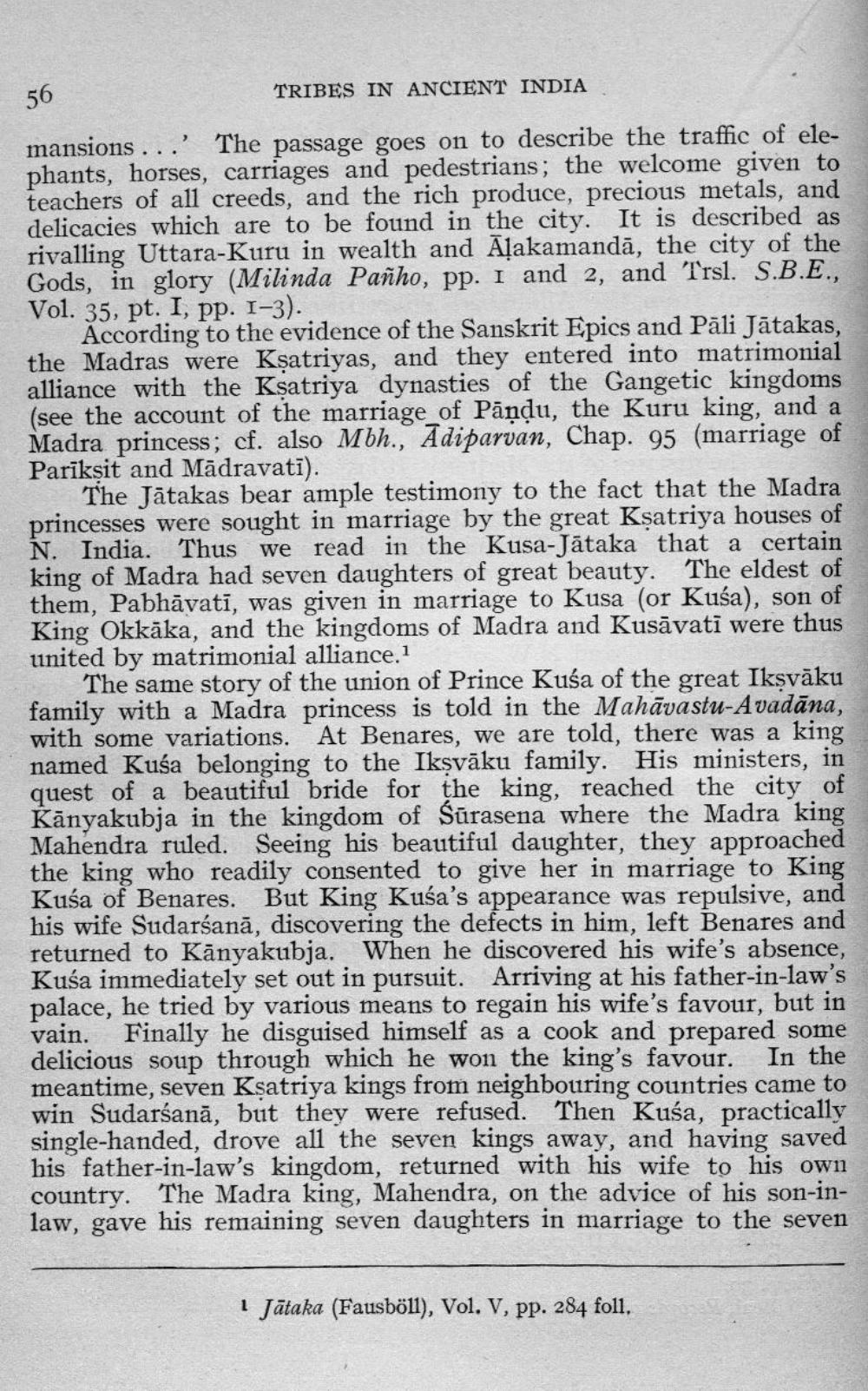________________
56
TRIBES IN ANCIENT INDIA mansions ... The passage goes on to describe the traffic of elephants, horses, carriages and pedestrians; the welcome given to teachers of all creeds, and the rich produce, precious metals, and delicacies which are to be found in the city. It is described as rivalling Uttara-Kuru in wealth and Āļakamandā, the city of the Gods, in glory (Milinda Pañho, pp. I and 2, and Trsl. S.B.E., Vol. 35, pt. I, pp. 1-3).
According to the evidence of the Sanskrit Epics and Pāli Jātakas, the Madras were Ksatriyas, and they entered into matrimonial alliance with the Ksatriya dynasties of the Gangetic kingdoms (see the account of the marriage of Pāņdu, the Kuru king, and a Madra princess; cf. also Mbh., Adiparvan, Chap. 95 (marriage of Parīkşit and Mädravati).
The Jātakas bear ample testimony to the fact that the Madra princesses were sought in marriage by the great Ksatriya houses of N. India. Thus we read in the Kusa-Jätaka that a certain king of Madra had seven daughters of great beauty. The eldest of them, Pabhāvatī, was given in marriage to Kusa (or Kusa), son of King Okkāka, and the kingdoms of Madra and Kusāvati were thus united by matrimonial alliance.1
The same story of the union of Prince Kuśa of the great Ikşvāku family with a Madra princess is told in the Mahāvastu-Avadāna, with some variations. At Benares, we are told, there was a king named Kuśa belonging to the Iksvāku family. His ministers, in quest of a beautiful bride for the king, reached the city of Kānyakubja in the kingdom of Sūrasena where the Madra king Mahendra ruled. Seeing his beautiful daughter, they approached the king who readily consented to give her in marriage to King Kuśa of Benares. But King Kuśa's appearance was repulsive, and his wife Sudarśanā, discovering the defects in him, left Benares and returned to Kānyakubja. When he discovered his wife's absence, Kuśa immediately set out in pursuit. Arriving at his father-in-law's palace, he tried by various means to regain his wife's favour, but in vain. Finally he disguised himself as a cook and prepared some delicious soup through which he won the king's favour. In the meantime, seven Ksatriya kings from neighbouring countries came to win Sudarsanā, but they were refused. Then Kusa, practically single-handed, drove all the seven kings away, and having saved his father-in-law's kingdom, returned with his wife to his own country. The Madra king, Mahendra, on the advice of his son-inlaw, gave his remaining seven daughters in marriage to the seven
1 Jataka (Fausböl), Vol. V, pp. 284 foll,




